Sir James Galway’s Legacy Timeline
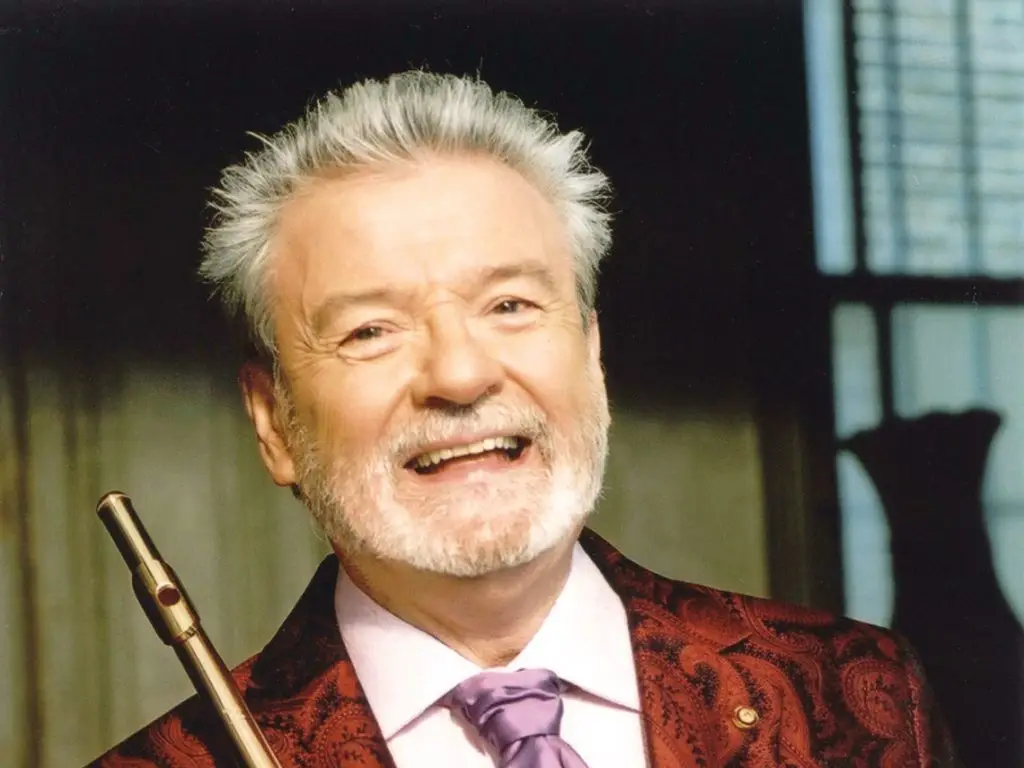
As Sir James Galway, the “Man with the Golden Flute,” celebrates his 86th birthday, Flute Almanac is honored to pay tribute to his extraordinary career and lifelong contributions to the world of music.
From his humble beginnings in Belfast, Northern Ireland, to becoming a global icon and one of the most celebrated flutists in history, Galway’s journey is a story of talent, dedication, and passion for his craft.
This timeline is a reflection of his remarkable achievements – his groundbreaking solo career, collaborations with legendary artists, premieres of significant works, and unwavering commitment to education and advocacy for the flute.
Sir James Galway’s artistry has not only elevated the flute to new heights but has also inspired countless musicians across generations.
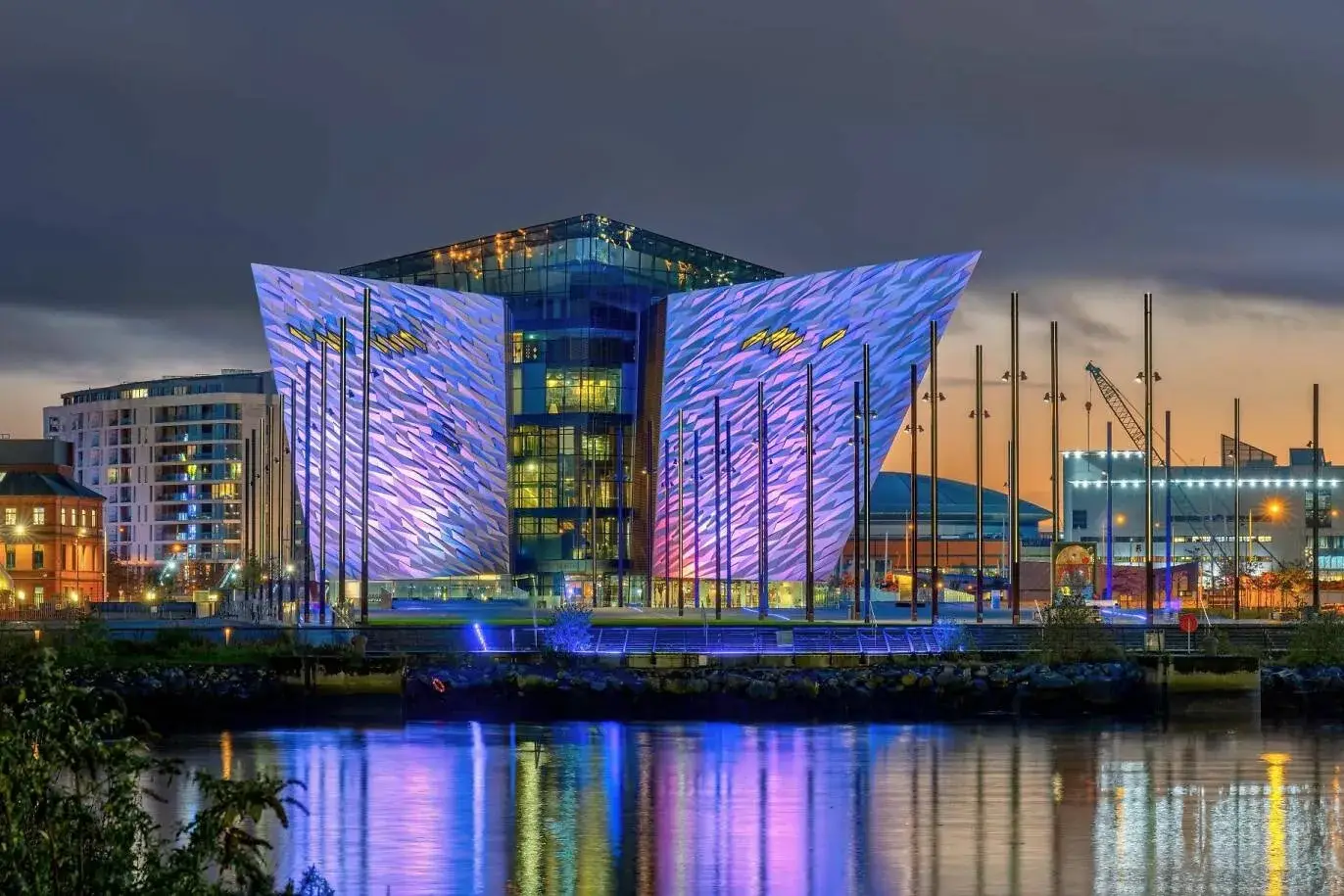
Sir James Galway was born on December 8, 1939, in Belfast, Northern Ireland, into a family with a deep connection to music.
His grandfather was a professional flutist, while his father and uncle were accomplished amateur players.
Growing up in the Short Strand area of Belfast, young James was surrounded by the sounds of both traditional Irish music and classical flute playing, which inspired his early love for the instrument.
Galway began his musical journey by learning the penny whistle, an iconic instrument in Irish folk music, before transitioning to the flute.
His grandfather’s professional expertise and his family’s encouragement played a pivotal role in nurturing his talent.
By the age of nine, Galway was winning local music competitions, quickly establishing himself as a prodigious young musician.
He also joined local flute bands, gaining valuable ensemble playing experience and developing a disciplined approach to music. These formative years in Belfast were instrumental in shaping his artistry, laying the foundation for his illustrious career.
Galway often reflects on his upbringing with pride, crediting his family’s musical influence and the vibrant culture of Belfast for instilling in him the passion and determination that propelled him to become one of the world’s most celebrated flutists.
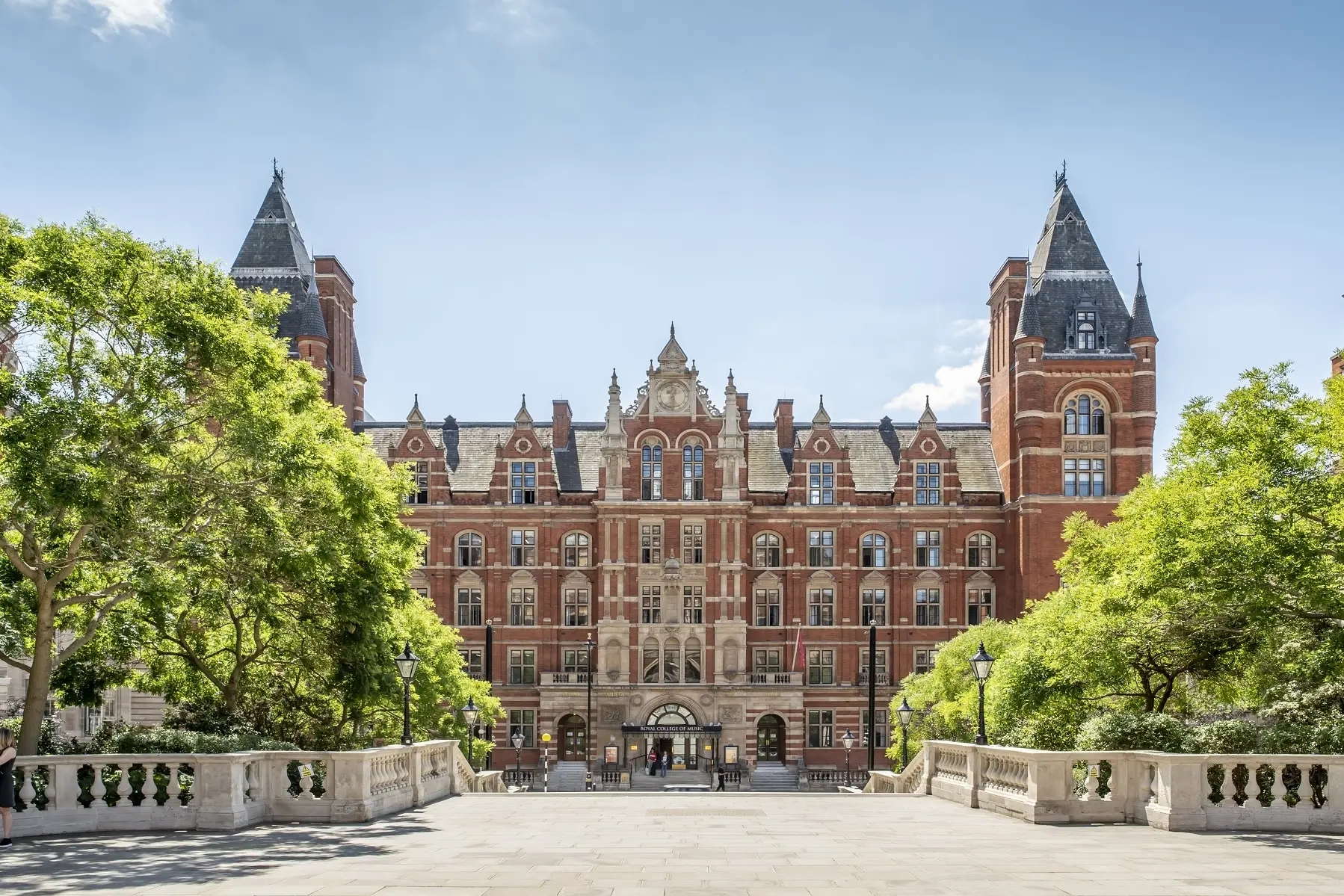
In 1956, at the age of 16, Sir James Galway was awarded a prestigious scholarship to the Royal College of Music (RCM) in London. This marked a pivotal moment in his early development as a musician, allowing him to study at one of the world’s most respected institutions for classical music.
At the RCM, Galway studied under renowned flutist and pedagogue John Francis, who greatly influenced his technical foundation and artistic approach.
The rigorous training provided by the college helped Galway refine his tone, technique, and interpretation, setting the stage for his future success.
During this time, he also immersed himself in chamber music and orchestral playing, gaining valuable experience that would serve him throughout his career.
The scholarship not only recognized Galway’s exceptional talent but also enabled him to transition from his modest beginnings in Belfast to a professional music career. His time at the RCM was the first step in a journey that would lead him to further studies at the Guildhall School of Music and Drama in London and the Paris Conservatoire.
This scholarship laid the groundwork for Galway’s rapid rise in the classical music world, marking the beginning of his path to becoming one of the most celebrated flutists of his generation.
In 1966, Sir James Galway was appointed Principal Flute of the London Symphony Orchestra (LSO), one of the most prestigious orchestras in the world. This position marked a significant milestone in his early career, as it provided him the opportunity to work with some of the finest musicians and conductors of the time.
During his tenure with the LSO, Galway performed in an array of symphonic works, concertos, and recordings, many of which showcased his technical mastery and distinctive tone. His role involved not only contributing to the orchestra's overall sound but also taking on prominent solos, particularly in works by composers such as Mozart, Beethoven, and Ravel.
In 1969, Sir James Galway was appointed Principal Flute of the Berlin Philharmonic, one of the world’s most renowned orchestras, under the legendary conductor Herbert von Karajan.
This prestigious position placed Galway at the pinnacle of the classical music world, as the Berlin Philharmonic was celebrated for its exceptional artistry and global influence.
Herbert von Karajan, known for his exacting standards and commitment to musical excellence, was a dominant figure in the orchestral world.
Working closely with Karajan allowed Galway to refine his artistry and gain invaluable experience performing in a rigorous and demanding environment. During his tenure, Galway performed in major symphonic works, including those by Beethoven, Brahms, and Mahler, contributing to the orchestra's iconic recordings and tours.
This role not only showcased Galway’s technical brilliance and musicality but also gave him the opportunity to work alongside some of the most distinguished musicians of his time.
His performances with the Berlin Philharmonic further established his reputation as one of the world’s leading flutists.
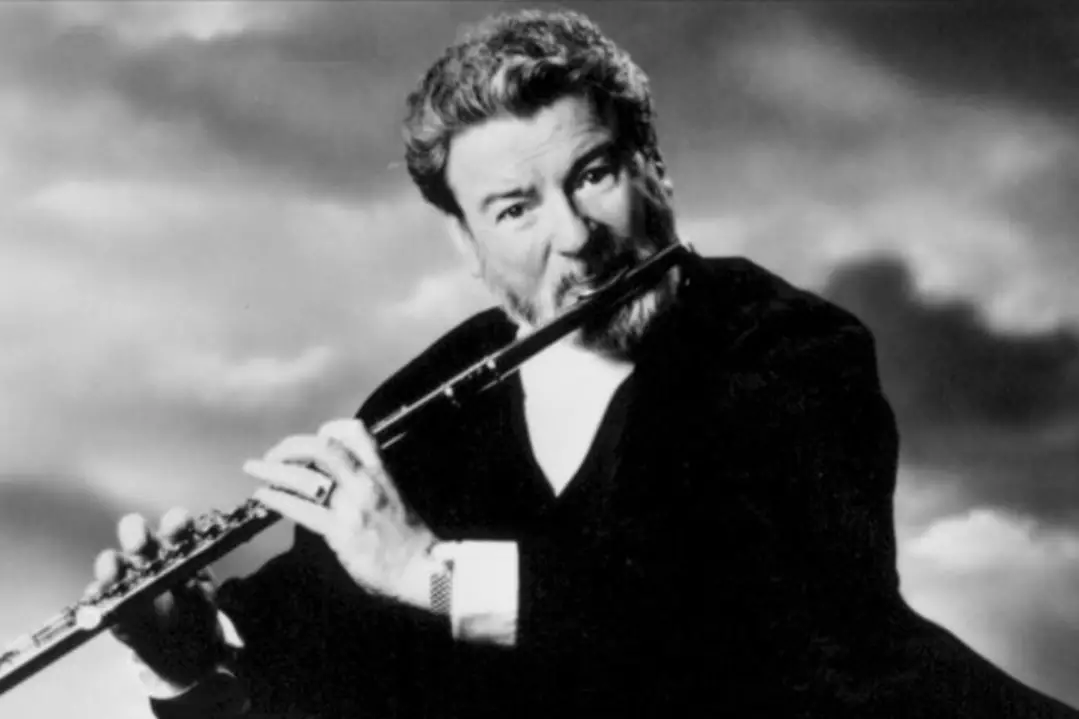
In 1975, Sir James Galway made the bold decision to leave his prestigious position as Principal Flute of the Berlin Philharmonic under the legendary conductor Herbert von Karajan. This marked a turning point in his career, as he chose to embark on a groundbreaking journey as a solo artist, a path rarely taken by orchestral musicians at the time.
Galway’s decision was driven by a desire for greater artistic freedom and the opportunity to explore the flute as a standalone instrument capable of captivating global audiences. In his first year as a soloist, Galway performed an astonishing 120 concerts, an extraordinary achievement that underscored his appeal and stamina as a performer. These concerts included appearances with leading orchestras, intimate recitals, and collaborations with chamber ensembles, showcasing his versatility and charisma.
The overwhelmingly positive reception to his solo career set new standards for flutists worldwide. Galway’s success not only elevated the flute to a prominent position in the solo repertoire but also redefined what it meant to be a classical soloist. His technical brilliance, expressive tone, and ability to connect with audiences helped him transition seamlessly into this new phase of his career, quickly establishing him as one of the most celebrated classical musicians of his time.
This decision to pursue a solo career paved the way for Galway's extraordinary journey, which has included chart-topping recordings, premieres of contemporary works, and collaborations across musical genres, making him a household name in classical music.
In 1978, Sir James Galway gave the world premiere of Joaquín Rodrigo's Concierto Pastoral, a flute concerto composed specifically for him. The performance took place at the Queen Elizabeth Hall in London, with Galway accompanied by the Philharmonia Orchestra under the baton of Eduardo Mata.
Rodrigo, renowned for his iconic Concierto de Aranjuez, wrote the Concierto Pastoral to showcase Galway's extraordinary virtuosity and expressive range. The concerto, marked by its lively rhythms, rich textures, and intricate passages, evokes the pastoral beauty of the Spanish countryside. Its demanding solo part, filled with rapid arpeggios, extended techniques, and lyrical phrasing, was tailor-made to highlight Galway’s technical brilliance and musicality.
The premiere was a resounding success, further cementing Galway's reputation as a champion of new flute repertoire. Over time, the Concierto Pastoral has become a staple in the flute concerto repertoire, celebrated for its vibrant energy and challenging solo lines. Galway's collaboration with Rodrigo on this masterpiece remains one of the defining moments of his career, bridging classical tradition with contemporary innovation.

In 1979, Sir James Galway had the honor of performing for Pope John Paul II during one of the pontiff’s official audiences. This performance was a significant moment in Galway’s career, reflecting both his global recognition as a leading classical musician and his ability to bring the expressive power of the flute to audiences of profound cultural and spiritual significance.
The event took place during the early years of Pope John Paul II’s papacy, a time of great optimism and engagement with global cultural leaders.
Galway’s performance was part of the Vatican's efforts to embrace the arts as a unifying force, highlighting the role of music in fostering dialogue and connection across diverse communities.
This performance underscored Galway’s reputation as a cultural ambassador, not only for classical music but also for bridging artistic expression with meaningful global events. It remains a memorable highlight in his illustrious career.
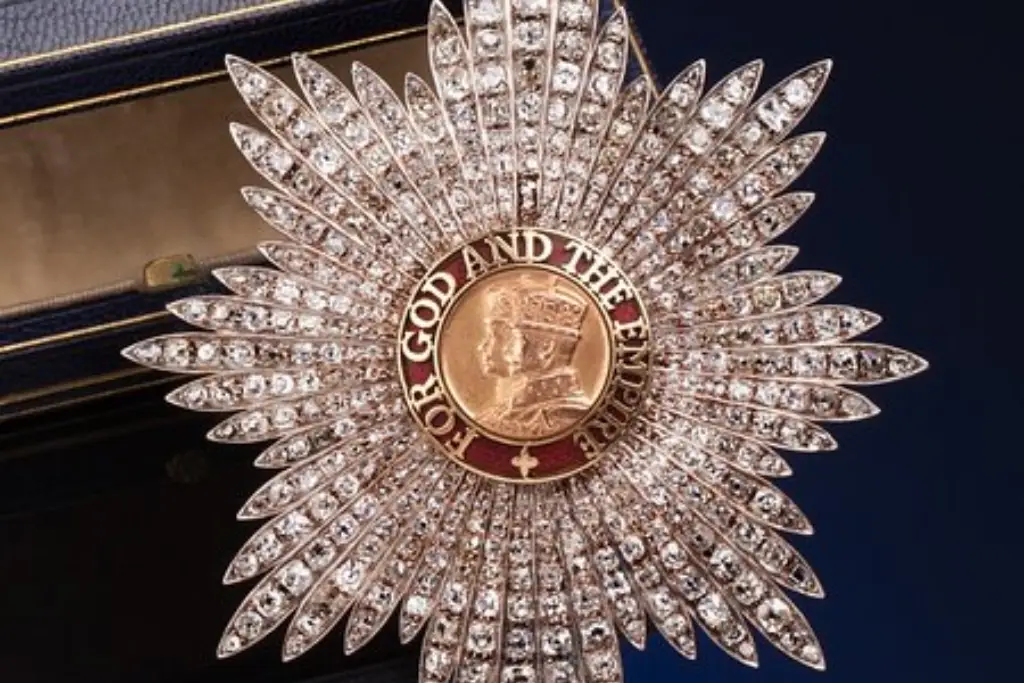
In 1979, Sir James Galway was honored with the Order of the British Empire (OBE) by Queen Elizabeth II, recognizing his outstanding contributions to the arts and his exceptional achievements as one of the world’s most celebrated flutists.
The award celebrated Galway’s ability to elevate the flute from an orchestral role to a prominent solo instrument, reaching global audiences through his performances and recordings.
At the time of receiving the OBE, Galway was already a household name in classical music, having left his position as principal flutist with the Berlin Philharmonic in 1975 to embark on a groundbreaking solo career. His unique artistry, technical brilliance, and charismatic stage presence had earned him a devoted following worldwide.
The OBE also acknowledged his efforts to promote classical music and his role as a cultural ambassador for the United Kingdom, bringing both traditional and contemporary flute music to a broad audience. This honor marked a significant milestone in Galway’s career, paving the way for further accolades, including his knighthood in 2001.
This recognition underscored Galway’s extraordinary contributions to music and his enduring legacy as one of the most influential flutists of all time.
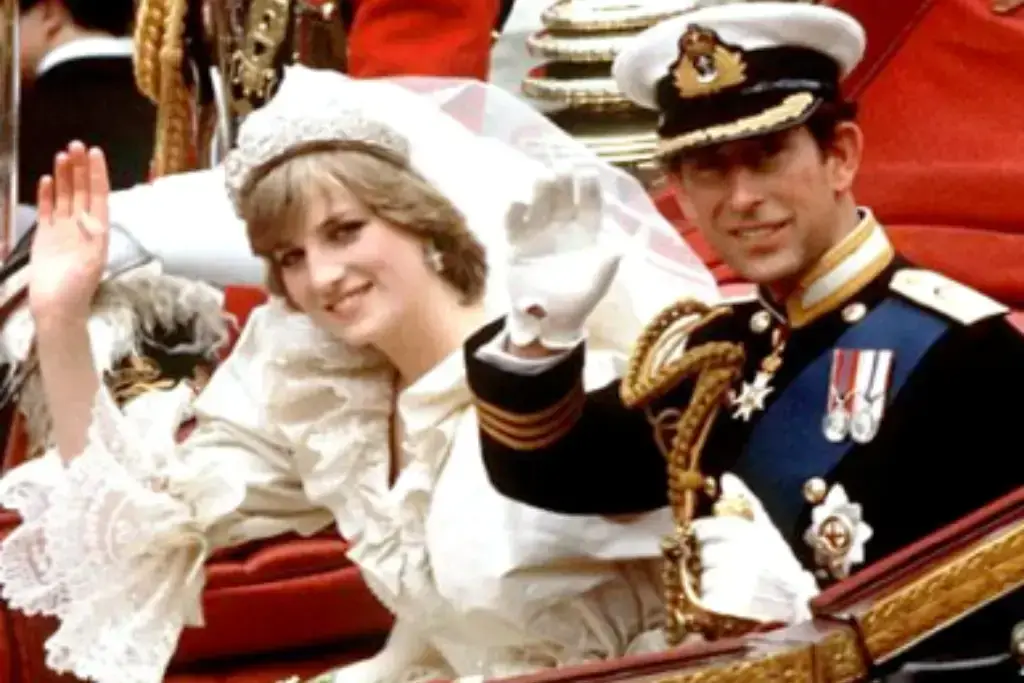
On July 29, 1981, Sir James Galway was invited to perform at the royal wedding of Prince Charles and Lady Diana Spencer, one of the most watched and celebrated events of the 20th century. The ceremony, held at St. Paul’s Cathedral in London, was attended by over 3,500 guests, including world leaders and dignitaries, and broadcast to an estimated global television audience of 750 million.
Sir James Galway’s performance added a distinguished and classical touch to the occasion. His elegant flute playing complemented the grandeur and solemnity of the event, making it even more memorable.
While the specifics of his musical selection are not widely documented, Galway’s involvement reflected his status as one of the world’s premier flutists, capable of bringing both technical brilliance and emotional depth to such a high-profile occasion.
This performance highlighted Galway’s ability to connect with audiences on a global scale and solidified his reputation as a musician of royal caliber. It also symbolized his deep connection to the United Kingdom’s cultural and musical heritage, further enhancing his legacy as a celebrated artist and ambassador for classical music.

"Flute" is a seminal work written by Sir James Galway as part of the Yehudi Menuhin Music Guides series. Published in 1982, this book offers a comprehensive and practical guide for flutists of all levels, from beginners to advanced players. Drawing on his extensive experience as one of the world’s leading flutists, Galway provides invaluable insights into the art and craft of flute playing.
Key topics covered in the book include:
Flute Playing Techniques:
Detailed explanations of fundamental techniques such as tone production, articulation, breath control, and finger exercises.
Instrument Care:
Practical advice on maintaining and caring for the flute to ensure optimal performance and longevity.
Interpretation and Musicality:
Galway shares his approach to interpreting various styles and pieces, offering tips on how to bring music to life with expression and individuality.
Repertoire:
Suggestions for essential flute repertoire, spanning different levels and musical eras, to help players expand their knowledge and skills.
The book is written in an accessible and engaging style, making complex concepts easy to understand. It also includes personal anecdotes and reflections, giving readers a glimpse into Galway’s philosophy and approach to music-making.
"Flute" has been praised for its practical value and inspiration, becoming a trusted resource for flutists and teachers worldwide. Whether addressing technical challenges or exploring musical expression, the book reflects Galway’s deep commitment to sharing his knowledge and passion for the flute.
This guide remains a significant contribution to music education literature and a testament to Galway’s enduring influence in the world of classical music.
In July 1990, Sir James Galway participated in the historic "The Wall" Concert in Berlin, a monumental live event celebrating the fall of the Berlin Wall. Organized by Pink Floyd's Roger Waters, the concert was a full-scale live performance of the iconic rock opera The Wall. Held at the Potsdamer Platz in Berlin, the event symbolized the reunification of East and West Germany and the triumph of freedom over division.
Galway's contribution to this landmark concert was a testament to his versatility as a musician. Sharing the stage with an eclectic lineup of world-renowned artists, including Cyndi Lauper, Van Morrison, Bryan Adams, and Joni Mitchell, Galway added a classical dimension to the event.
His performance stood out as a unifying element, bridging the gap between classical and popular music in a celebration of global solidarity.
The concert was attended by an audience of over 350,000 people and broadcast to millions worldwide, making it one of the most significant live events in music history.
Galway’s involvement further emphasized his ability to connect with diverse audiences and his willingness to bring his artistry to moments of profound historical and cultural importance.
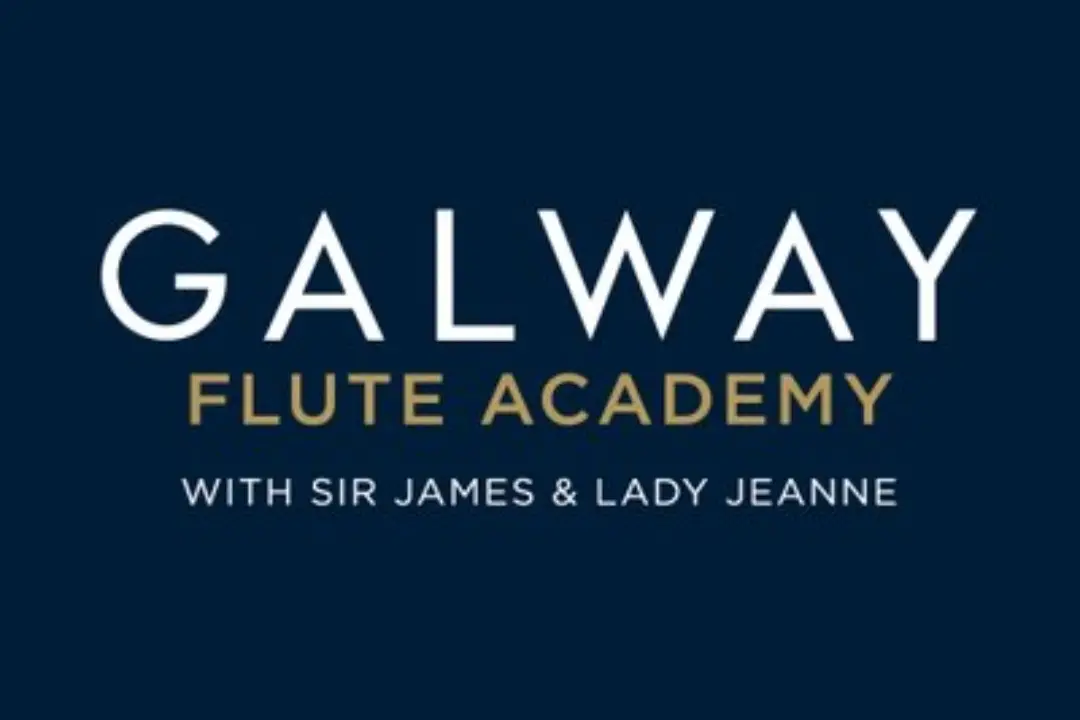
1990: Annual Masterclasses Begin in Switzerland
Sir James and Lady Jeanne Galway launched their first annual masterclasses in Switzerland. These sessions grew into one of the most prestigious summer flute festivals globally, attracting students, professionals, and amateurs from around the world.
2013: Galway Flute Academy Established
Building on over two decades of educational experience, the Galways formally founded the Galway Flute Academy. This platform offers masterclasses, festivals, and online learning opportunities, fostering a global community of flutists.
2020: Online Expansion During COVID-19 Pandemic
In response to the pandemic, the Academy accelerated its transition to online teaching, providing live and pre-recorded lessons to reach a broader audience. This shift made their expertise accessible to flute players worldwide.
In 1991, Sir James Galway recorded "Basque," an instrumental piece composed by Elton John. This collaboration earned Elton John the Grammy Award for Best Instrumental Composition in 1992. The piece was featured on Galway's album "Wind of Change," released in 1991. This partnership highlighted Galway's versatility and willingness to explore contemporary compositions, bridging classical and popular music genres.
On July 4, 1992, Sir James Galway and composer-conductor Henry Mancini performed together at the "A Capitol Fourth" concert, an annual Independence Day celebration held on the West Lawn of the U.S. Capitol in Washington, D.C. This event, hosted by E.G. Marshall, featured the National Symphony Orchestra under the direction of Hugh Wolff, with performances by artists including Patti LuPone and Julia Migenes.
During the concert, Galway and Mancini collaborated on a rendition of "Pennywhistle Jig," a piece composed by Mancini that showcases the flute's playful character. Their performance was a highlight of the evening, blending Galway's virtuosic flute playing with Mancini's distinctive compositional style.
This collaboration was part of a broader partnership between the two artists, which included the 1984 album "In the Pink," featuring Mancini's compositions performed by Galway. Their joint appearance at "A Capitol Fourth" exemplified their mutual respect and the seamless fusion of classical and popular music elements.
The 1992 "A Capitol Fourth" concert was broadcast nationally on PBS, allowing millions of viewers to enjoy the festivities and the exceptional performances by Galway, Mancini, and other distinguished artists.
Premiere of David Heath’s Concerto
In 1993, Sir James Galway premiered the David Heath Concerto at the Royal Festival Hall in London, performing with the Philharmonia Orchestra.
Heath's concerto, written specifically for Galway, pushed the boundaries of the flute’s expressive and technical range, blending contemporary classical elements with jazz and folk influences.
Galway’s performance brought vibrancy and nuance to this innovative work, earning critical acclaim and solidifying his role as a leading advocate for new flute compositions.
Premiere of Lowell Liebermann’s Flute Concerto
Later in 1993, Galway gave the world premiere of Lowell Liebermann’s Flute Concerto with the St. Louis Symphony Orchestra.
The concerto, commissioned for Galway, is a virtuosic work that highlights the flute’s lyrical and dramatic capabilities. Galway’s mastery of the instrument brought the piece to life, captivating audiences and critics alike.
This premiere further demonstrated his dedication to collaborating with contemporary composers to expand the flute’s repertoire.
Album Success: Masterpieces: The Essential Flute of James Galway
Also in 1993, Galway released Masterpieces: The Essential Flute of James Galway, a landmark album that became an immediate success, reaching #1 on the classical music charts.
This compilation featured a carefully curated selection of iconic flute works spanning the Baroque to modern eras. It showcased Galway’s unparalleled artistry, cementing his status as one of the most successful and versatile flutists of his generation.
The album’s success brought the flute to a wider audience, marking another milestone in Galway’s illustrious recording career.
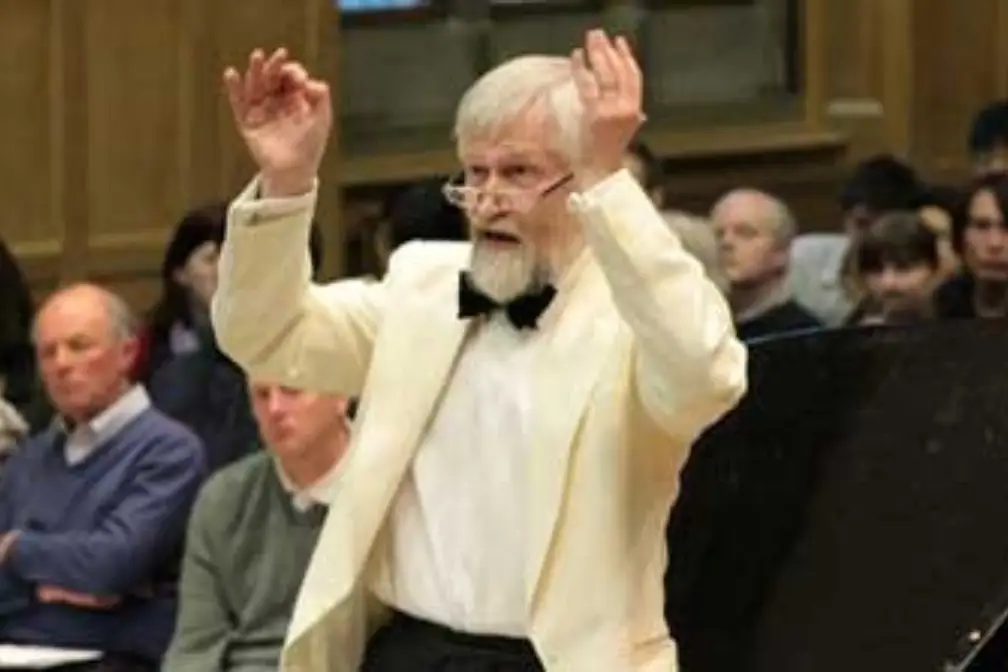
Premiere of George Nicholson’s Concerto
In 1994, Sir James Galway premiered George Nicholson’s Concerto with the prestigious Tonhalle Orchestra Zurich, showcasing his commitment to expanding the flute repertoire with contemporary works.
Nicholson’s composition, written specifically for Galway, highlighted the flute's expressive and technical capabilities. Galway's interpretation brought this challenging piece to life, earning acclaim for both his virtuosity and his dedication to new music.
Premiere of Jindrich Feld’s Concerto for Flute, Piano, and Orchestra
Also in 1994, Sir James Galway premiered Jindrich Feld’s Concerto for Flute, Piano, and Orchestra with the Tonhalle Orchestra Zurich. This world premiere demonstrated Galway's exceptional ability to collaborate on innovative compositions, blending his artistry with Feld’s intricate and dynamic writing.
In 1995, Sir James Galway received a Grammy Award for his recording of I Will Always Love You, a piece originally composed by Dolly Parton and famously performed by Whitney Houston. Galway's arrangement for flute added a classical dimension to this beloved song, showcasing his versatility and ability to blend classical artistry with popular music.
This achievement highlighted his unique talent for connecting with audiences across genres, further elevating the flute in mainstream music.
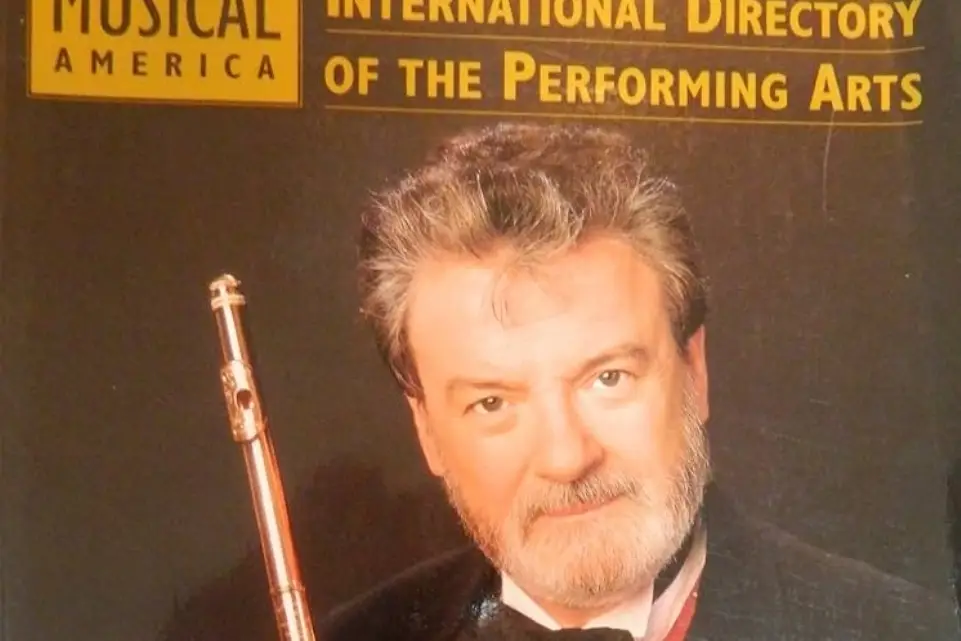
In 1997, Sir James was named Musician of the Year by Musical America, a title that recognizes the most influential and accomplished artists in the classical music world.
Galway has also received Record of the Year Awards from Billboard and Cash Box, reflecting his commercial success and widespread appeal. His recordings of Mozart’s Flute Concertos earned him the Grand Prix du Disque, solidifying his reputation as one of the finest interpreters of Mozart.
Over his career, Galway has achieved numerous gold and platinum discs, a rare feat for a classical musician, underscoring his unique ability to connect with diverse audiences.

In 1997, Sir James Galway was appointed Principal Guest Conductor of the London Mozart Players, one of the UK's premier chamber orchestras. This role marked an important expansion of his musical career, showcasing his skills not only as a flutist but also as a conductor.
As Principal Guest Conductor, Galway worked closely with the ensemble, leading performances that included both orchestral works and pieces featuring him as a flute soloist. His leadership brought a unique flair to the orchestra’s repertoire, combining his deep understanding of Mozart and other classical composers with his charismatic stage presence.
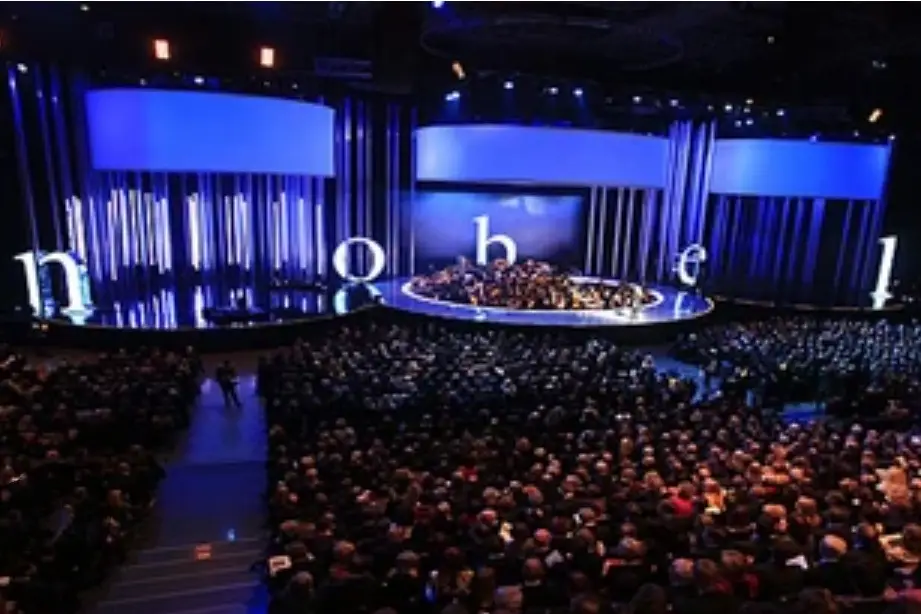
In December 1998, Sir James Galway performed at the Nobel Peace Prize Concert in Oslo, Norway, an event held annually to honor the Nobel Peace Prize laureates.
The concert took place at the Oslo Spektrum and featured a diverse lineup of international artists, including Alanis Morissette, Shania Twain, Phil Collins, and The Cranberries. Sir James Galway's performance added a classical dimension to the event, showcasing his exceptional flute artistry.
The concert was broadcast worldwide, reaching millions of viewers and celebrating the year's laureates, John Hume and David Trimble, for their efforts in the Northern Ireland peace process.
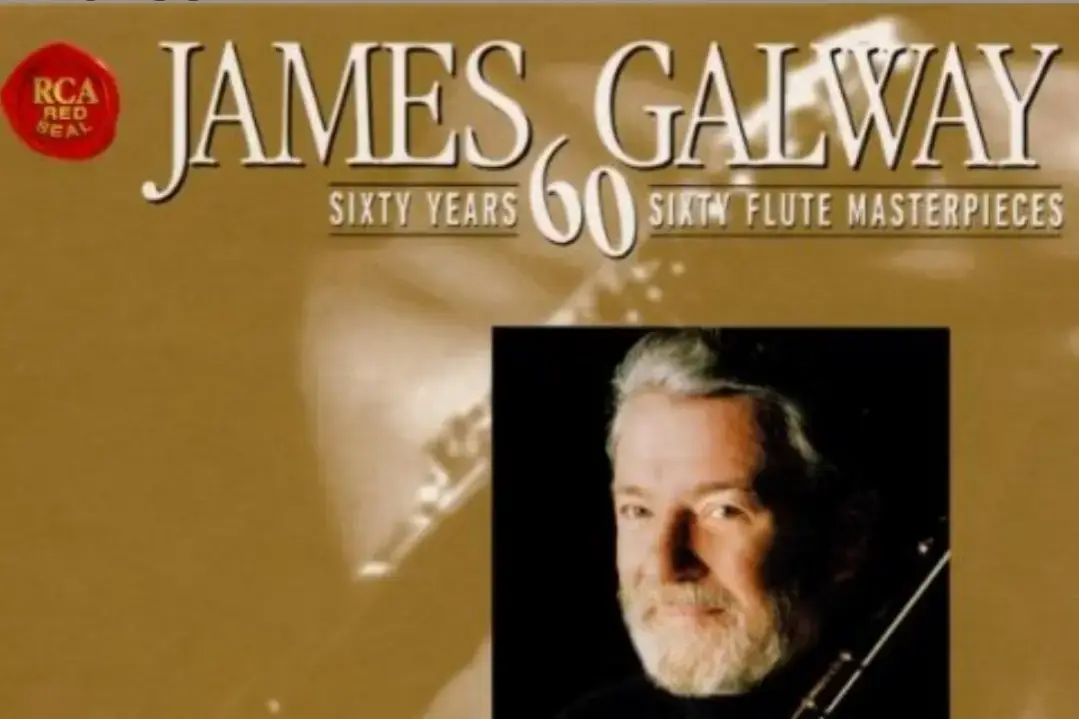
In 1999, to commemorate his 60th birthday, Sir James Galway released 60 Years, 60 Flute Masterpieces, a monumental 15-disc collection of flute music spanning from the Baroque era to the late 20th century. This comprehensive anthology showcased Galway's versatility and mastery of the flute, highlighting key works from composers such as Bach, Mozart, Debussy, and Prokofiev.
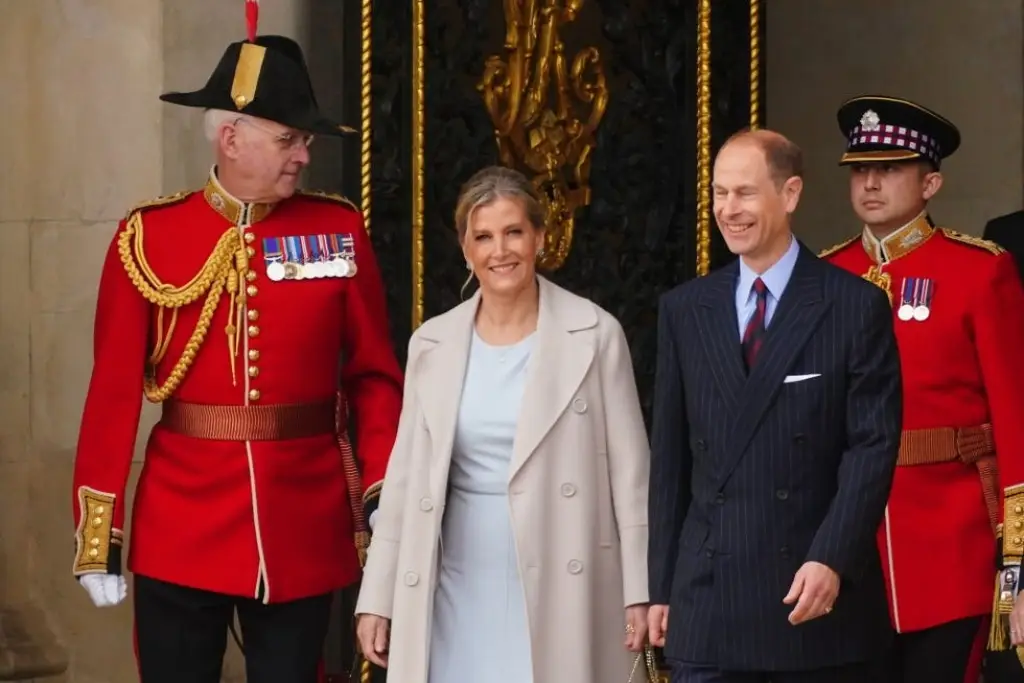
In 1999, Sir James Galway celebrated his 60th birthday with a highly successful sold-out solo tour across England, showcasing his remarkable artistry and enduring popularity. As part of the celebrations, Galway gave a private performance at Buckingham Palace for Prince Edward, a reflection of his prominence as one of the most respected classical musicians of his time.

On July 4, 2000, Sir James Galway performed as a guest soloist with the National Symphony Orchestra during PBS's nationally televised special, "A Capitol Fourth," broadcast live from the West Lawn of the U.S. Capitol. This event marked the first Independence Day celebration of the new millennium. The program featured a diverse lineup, including host Barry Bostwick, Ray Charles, Audra McDonald, Lee Ann Womack, Kristin Chenoweth, and jazz pianist David Benoit. Highlights included Ray Charles's rendition of "America, the Beautiful" and a salute to "Peanuts" creator Charles Schulz. The National Symphony Orchestra, under the direction of Leonard Slatkin, performed pieces such as Aaron Copland's "Fanfare for the Common Man," and the evening concluded with Tchaikovsky's "1812 Overture" accompanied by fireworks.
Sir James Galway's participation in this event exemplified his role as a cultural ambassador, bringing classical music to a broad audience and celebrating American heritage through the universal language of music.
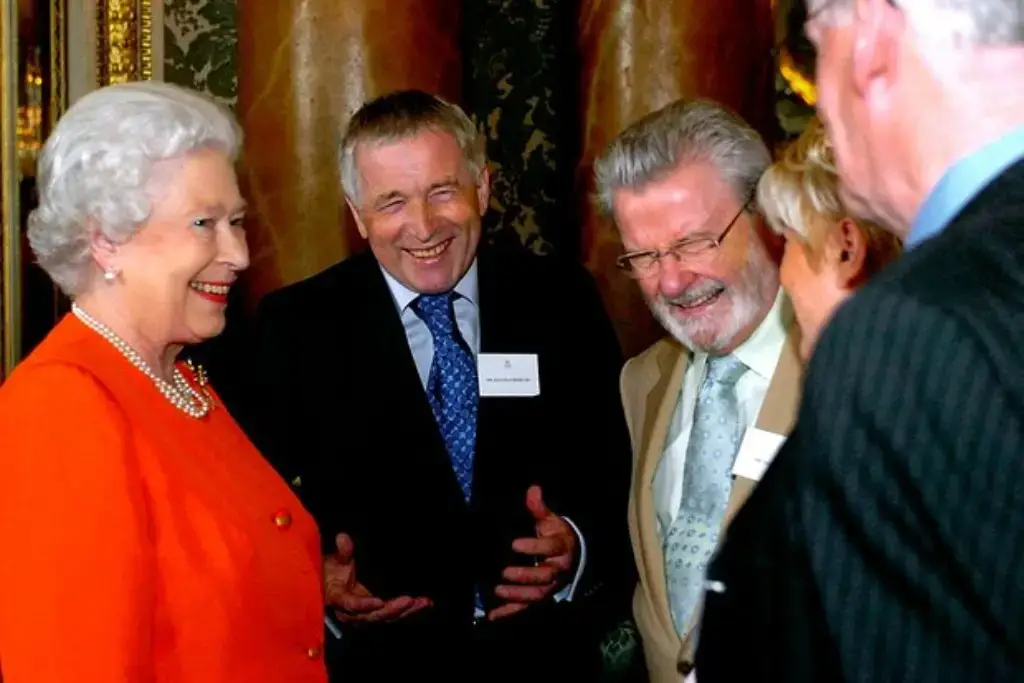
In June 2001, Sir James Galway was knighted by Queen Elizabeth II for his exceptional services to music. This prestigious honor recognized his extraordinary career as one of the most celebrated flutists in the world, as well as his role as a cultural ambassador for classical music. Born in Belfast, Galway's knighthood also celebrated his contributions to the global arts community and his commitment to sharing his talent across a wide range of audiences.
The knighthood followed decades of remarkable achievements, including his solo career, which began in 1975 after leaving the Berlin Philharmonic. His work brought classical flute music to the forefront, reaching millions through concerts, recordings, and television appearances.
Sir James has often spoken about the significance of this honor, not just for himself but as a recognition of the flute's potential as a leading instrument in classical music. The title "Sir" further cemented his legacy as one of the most influential and revered musicians of his time.
The knighthood added to Galway's previous recognition by the British monarchy, as he was also awarded the Order of the British Empire (OBE) in 1979. Together, these accolades highlight his lifelong dedication to music and his profound impact on the art form.
In 2003, Sir James Galway contributed his exceptional talent to the soundtrack of The Lord of the Rings: The Return of the King, composed by Howard Shore. Galway's expressive flute playing became an integral part of the Academy Award-winning score, adding a haunting and lyrical quality to the film's evocative music.
One of the most notable moments is his performance in "The Steward of Gondor," where his flute underscores the poignant scene featuring Pippin’s song, enhancing the emotional depth of the narrative. His playing is also featured in other key tracks, including "The Grey Havens," contributing to the ethereal and otherworldly atmosphere of the score.
The soundtrack won numerous accolades, including the Academy Award for Best Original Score and Grammy Award for Best Score Soundtrack for Visual Media, further highlighting Galway's contribution to this cinematic masterpiece. His collaboration with Howard Shore showcased his versatility and ability to elevate music across genres, leaving a lasting impression on audiences worldwide.
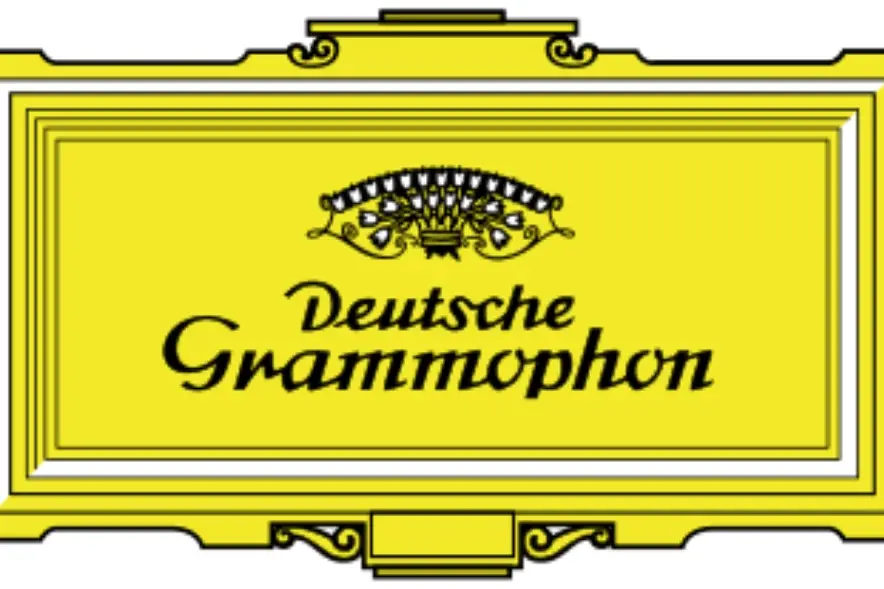
In March 2004, Sir James Galway signed an exclusive recording contract with Deutsche Grammophon, a leading classical music label. This partnership marked a significant chapter in his recording career, leading to several acclaimed albums.
His debut album under this contract, "Wings of Song", was released in August 2004 and quickly reached the No. 1 spot on the classical charts. This album showcased Galway's versatility, featuring a diverse selection of pieces that highlighted his exceptional artistry.
Following this success, in March 2006, he released "Ich war ein Berliner", a collection that includes orchestral and chamber music recordings, spotlighting his solos and documenting his tenure with the Berlin Philharmonic. This album provided listeners with a unique insight into his experiences with one of the world's premier orchestras.
Later in 2006, Galway presented "My Magic Flute", featuring Mozart's Concerto for Flute and Harp (with harpist Catrin Finch) and a selection of favorite arias, sonatas, and concerto movements, all arranged for flute. This recording further exemplified his dedication to bringing classical masterpieces to a broad audience.
These collaborations with Deutsche Grammophon not only enriched Galway's discography but also reinforced his status as one of the leading flutists of his generation, continually expanding the reach and appreciation of classical flute music.

In 2005, during the Classical Brit Awards at London's Royal Albert Hall, Sir James Galway was honored with the Outstanding Contribution to Music Award. This accolade celebrated his remarkable 30-year solo career and his significant impact on classical music. The event featured a performance by Sir James, highlighting his exceptional artistry and dedication to the flute.
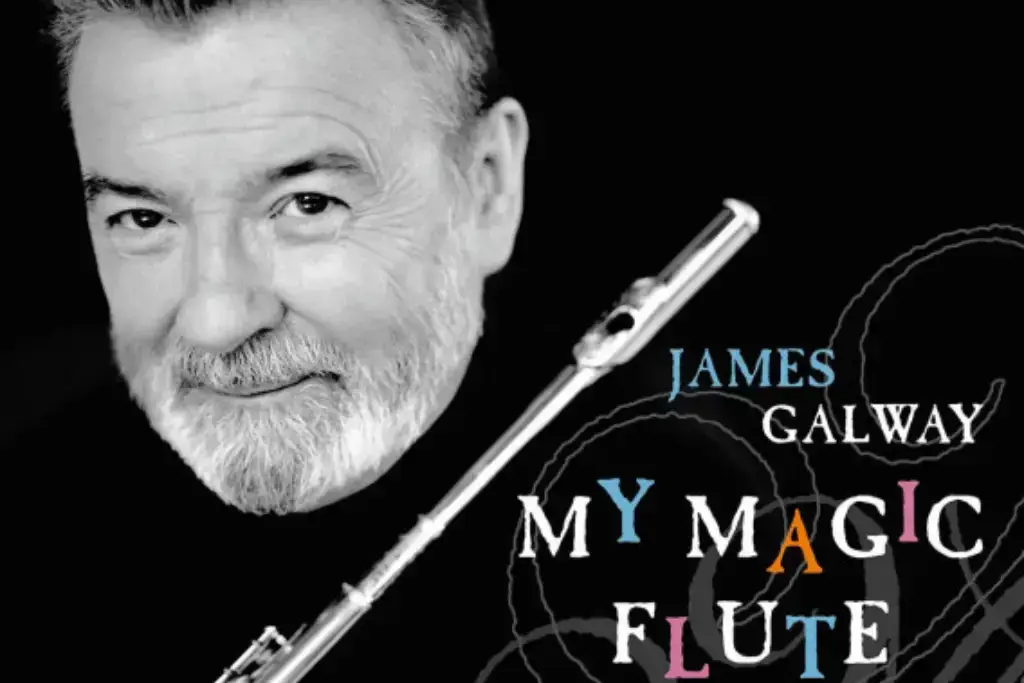
In 2006, Sir James Galway released My Magic Flute, an album that beautifully showcases his versatility and passion for the works of Wolfgang Amadeus Mozart. This recording features a collection of Mozart's most beloved compositions, including the Concerto for Flute and Harp, performed with harpist Catrin Finch, alongside other iconic arias and movements arranged for flute.
What sets this album apart is its imaginative approach to presenting Mozart's music. Several pieces were reimagined as flute solos or flute duets, performed by Sir James Galway and Lady Jeanne Galway, adding a fresh and unique perspective to the repertoire. The album also highlights Galway's remarkable ability to bring a lyrical, vocal quality to the flute, embodying Mozart's spirit and elegance.
My Magic Flute received widespread acclaim for its artistry and creativity, further cementing Galway's reputation as one of the world's greatest interpreters of classical flute repertoire. This recording remains a testament to his dedication to making classical music accessible and enchanting for audiences worldwide.
In 2008, Irish America magazine honored Sir James Galway with the Spirit of Ireland Award, recognizing his outstanding contributions as a musical ambassador and his dedication to promoting Irish culture worldwide. Born in Belfast, Galway has long been celebrated for his role in showcasing Ireland's rich musical heritage through his performances and influence on the global stage. This award acknowledged his exceptional artistry and his enduring connection to his Irish roots.
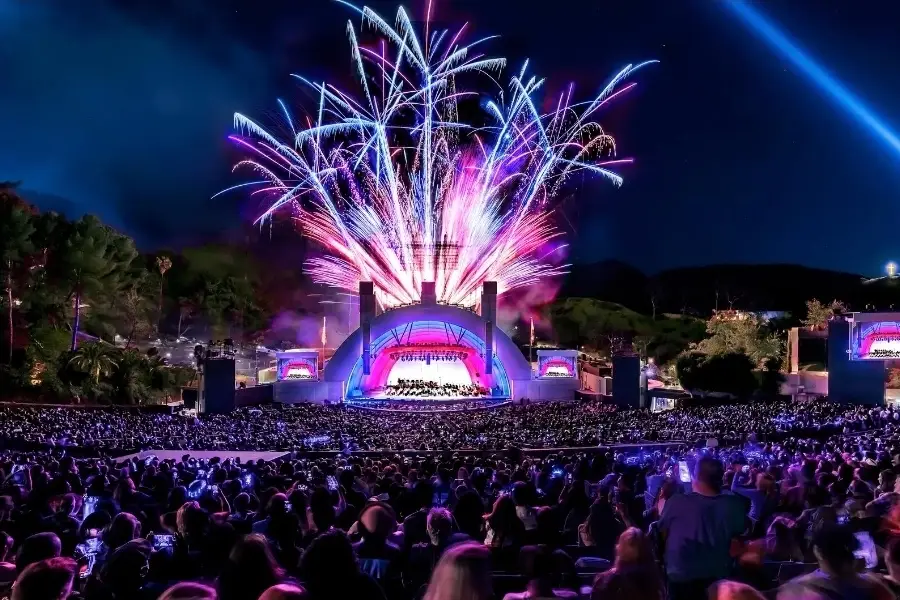
In June 2008, Sir James Galway was inducted into the Hollywood Bowl Hall of Fame, a prestigious honor that celebrates artists who have made significant contributions to music and have a history of performances at the Hollywood Bowl. During the opening night concert of the Bowl's 87th season, Galway was honored alongside legendary blues guitarist B.B. King and iconic entertainer Liza Minnelli.
The event featured performances by the inductees and concluded with a fireworks display, marking a memorable celebration of their illustrious careers.
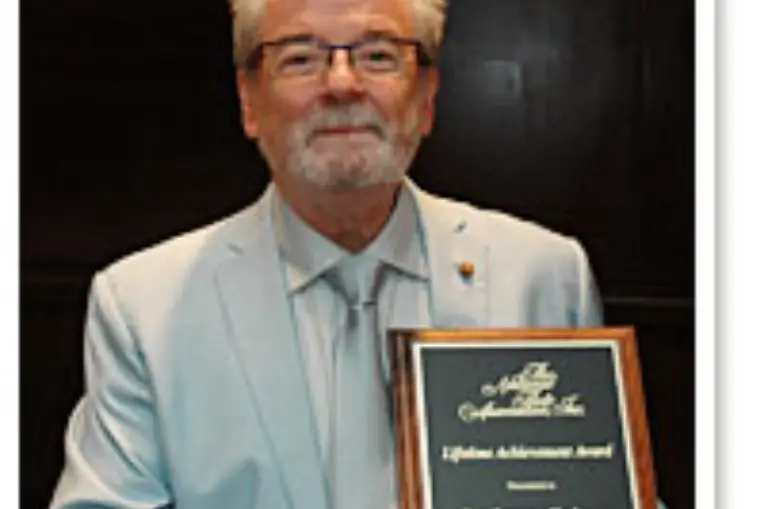
In 2009, the National Flute Association (NFA) honored Sir James Galway with its Lifetime Achievement Award, recognizing his exceptional contributions to the flute community and his role in popularizing the instrument across diverse musical genres.
During the NFA's annual convention in New York City that year, Sir James led a historic ensemble of 1,989 flutists, setting a Guinness World Record for the largest flute ensemble. The group performed "Galway Fantasie," a piece commissioned by Sir James for the occasion and composed by David Overton.
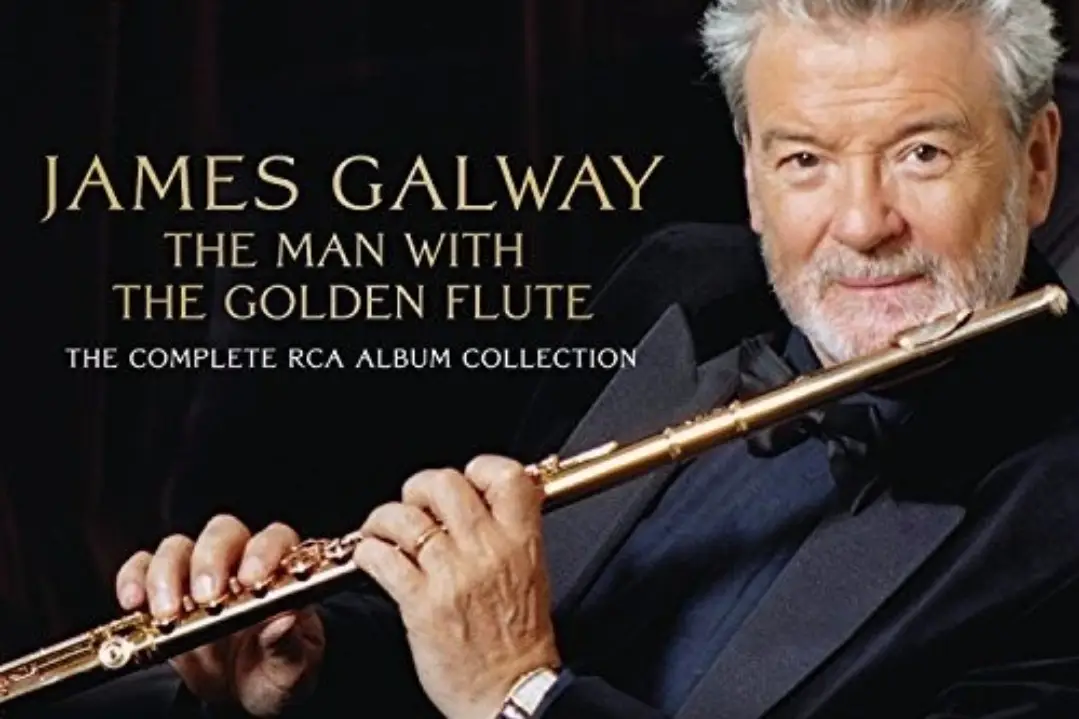
In October 2009, Sir James Galway released his memoir, The Man with the Golden Flute: Sir James, a Celtic Minstrel, co-authored with Linda Bridges. This autobiography offers a closer look into Galway's journey from his early years in Belfast to his rise as an internationally acclaimed flutist. He shares personal anecdotes about his musical development, experiences with renowned ensembles like the Berlin Philharmonic, and collaborations with artists across various genres, including the Chieftains, John Denver, and Pink Floyd.
The memoir also delves into the challenges of balancing a public musical career with private life, providing insights into the classical music world and Galway's dedication to his craft.
In December 2009, Sir James Galway was named the first Artist Laureate of the Ulster Orchestra, honoring his exceptional contributions to music and his deep connection to Northern Ireland. Born in Belfast, this role celebrated his illustrious career while promoting classical music and supporting the orchestra's educational initiatives in his homeland.
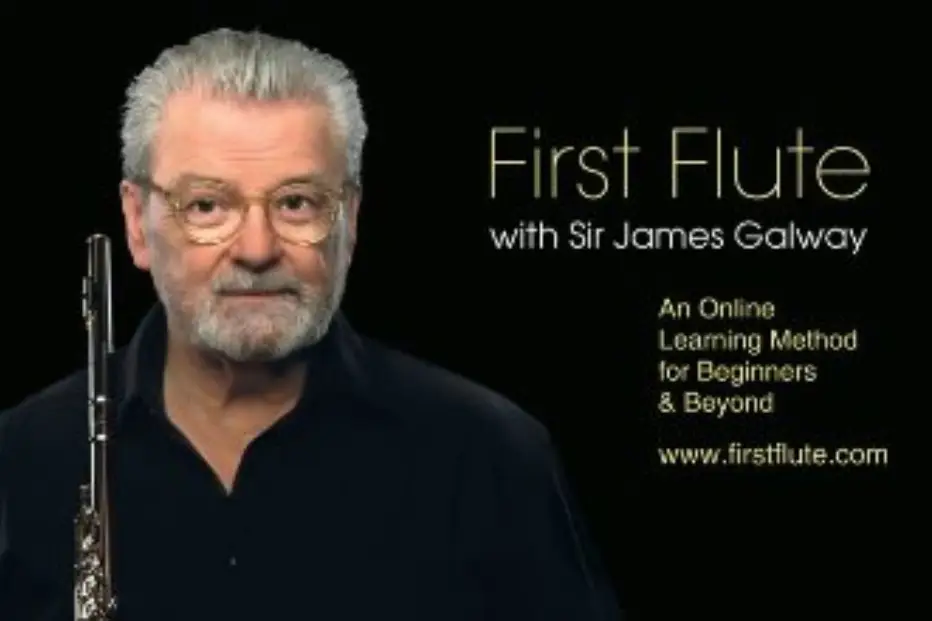
In December 2013, Sir James Galway launched First Flute, an online interactive teaching platform for flute students of all ages. Featuring step-by-step video lessons taught by Galway himself, the program covers fundamentals like tone, articulation, and musicality, accompanied by downloadable materials.
Designed for global accessibility, First Flute allows students to learn directly from one of the world’s greatest flutists, making his expertise available to learners everywhere and reflecting his dedication to music education.
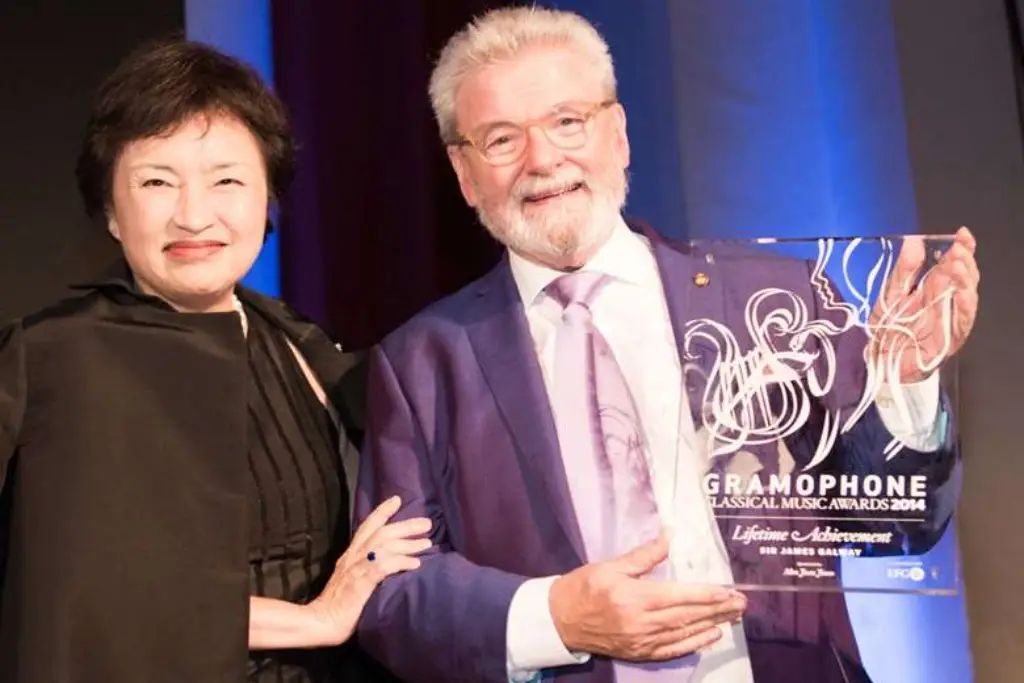
In 2014, Sir James Galway received the prestigious Gramophone Lifetime Achievement Award. This honor celebrated his unparalleled career as one of the world’s greatest flutists, his contributions to classical music, and his lasting influence on generations of musicians and audiences worldwide.
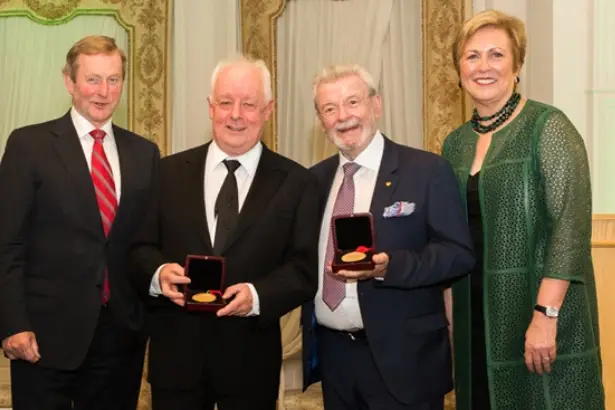
In 2016, Sir James Galway was honored with the prestigious Kennedy Center Gold Medal in the Arts. This accolade recognized his extraordinary contributions to classical music, his role as a cultural ambassador, and his enduring impact on the global arts community.

In 2018, Sir James Galway was awarded an Honorary Doctorate of Music by the University of Miami in recognition of his outstanding contributions to the world of music, his dedication to education, and his enduring influence as a global ambassador for the flute.
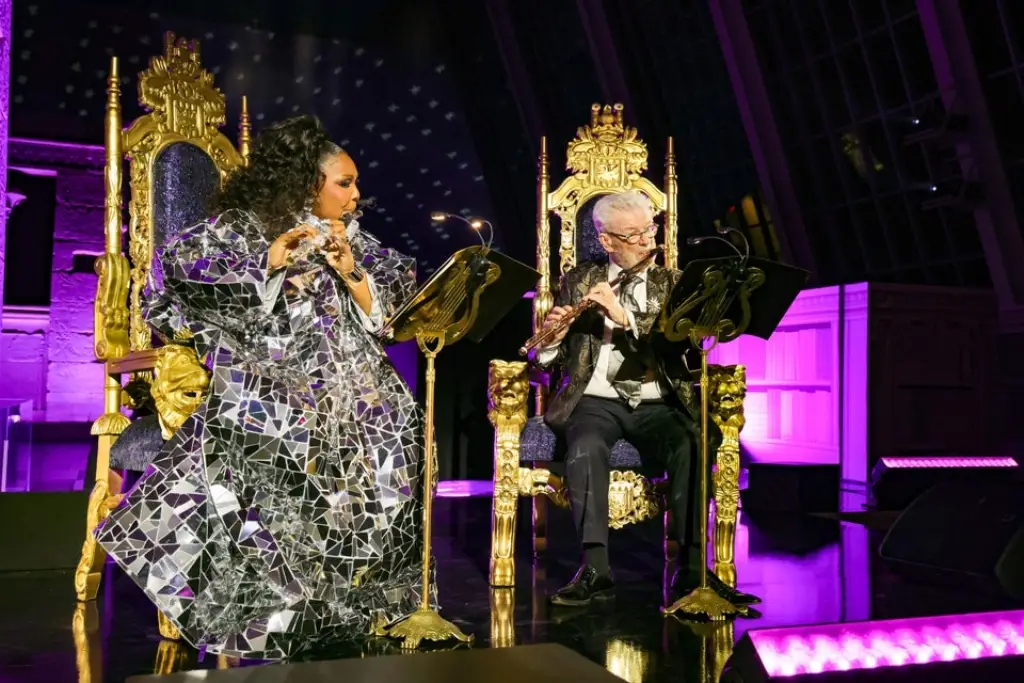
Sir James Galway shared the stage with pop sensation Lizzo at the Met Gala, showcasing his ability to bridge classical and popular music for a global audience.
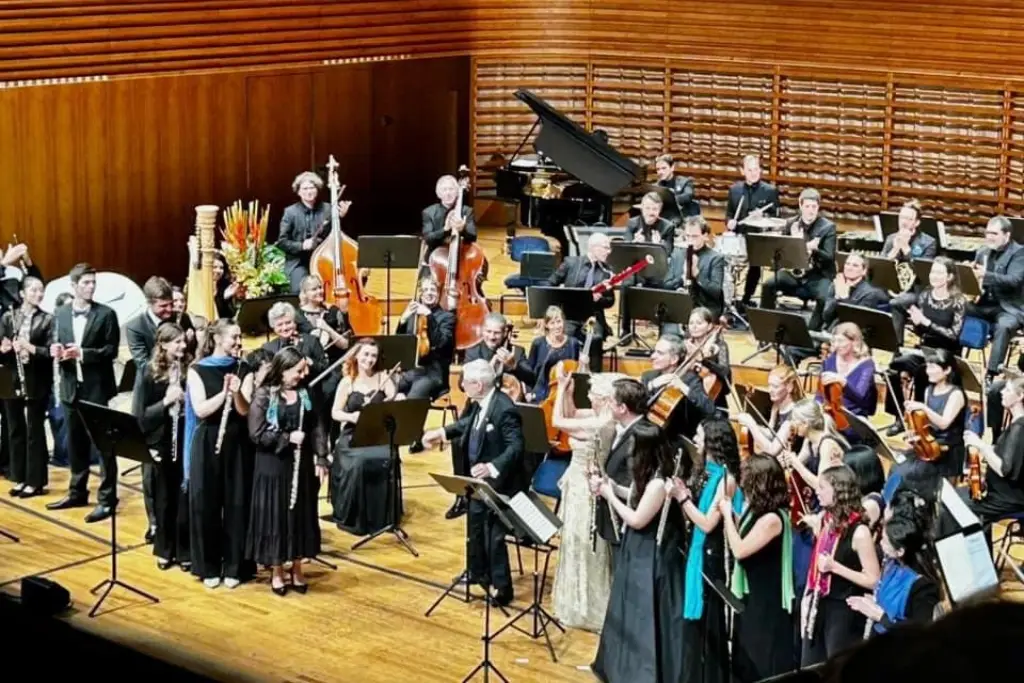
A grand gala concert celebrated Sir James Galway's 85th birthday, featuring performances by world-renowned artists, including Lady Jeanne Galway, Karl-Heinz Schütz, Gareth Davies, Nicola Mazzanti, and Anneleen Lenaerts. The event also showcased the winners of the Galway Flute Academy Competition and included memorable performances of Brandenburg Concerto No. 4, Mozart's Flute and Harp Concerto, and Galway Fair by David Overton.
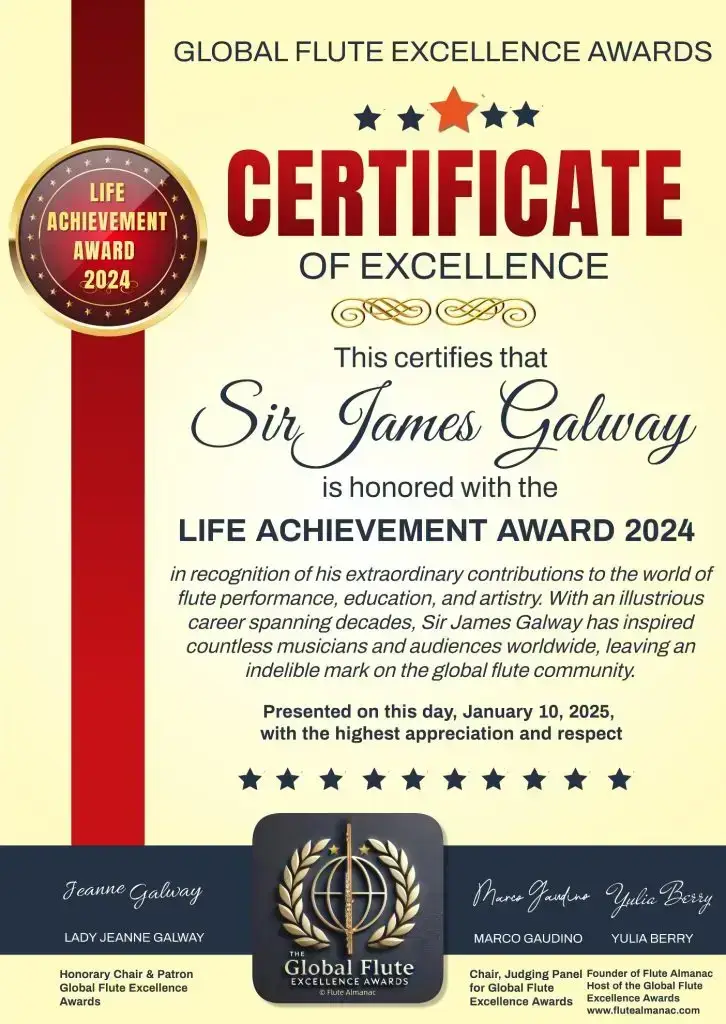
In recognition of his extraordinary contributions to flute performance, education, and artistry, the Global Flute Excellence Awards proudly honored Sir James Galway with the Lifetime Achievement Award 2024. This distinction celebrates a legacy that has shaped the global flute community for more than six decades.

Sir James Galway and Lady Jeanne Galway joyfully celebrated their 41st wedding anniversary at their home in Switzerland — a cherished milestone for one of the flute world's most beloved and inspiring couples. Marked by music, gratitude, and the warmth of family and friends, the celebration reflected the deep partnership that has shaped not only their lives but also their shared journey as global ambassadors of the flute.
The anniversary coincided with Switzerland’s National Day, creating a festive atmosphere filled with beauty and tradition — a fitting backdrop for a couple whose partnership continues to inspire flutists around the globe.
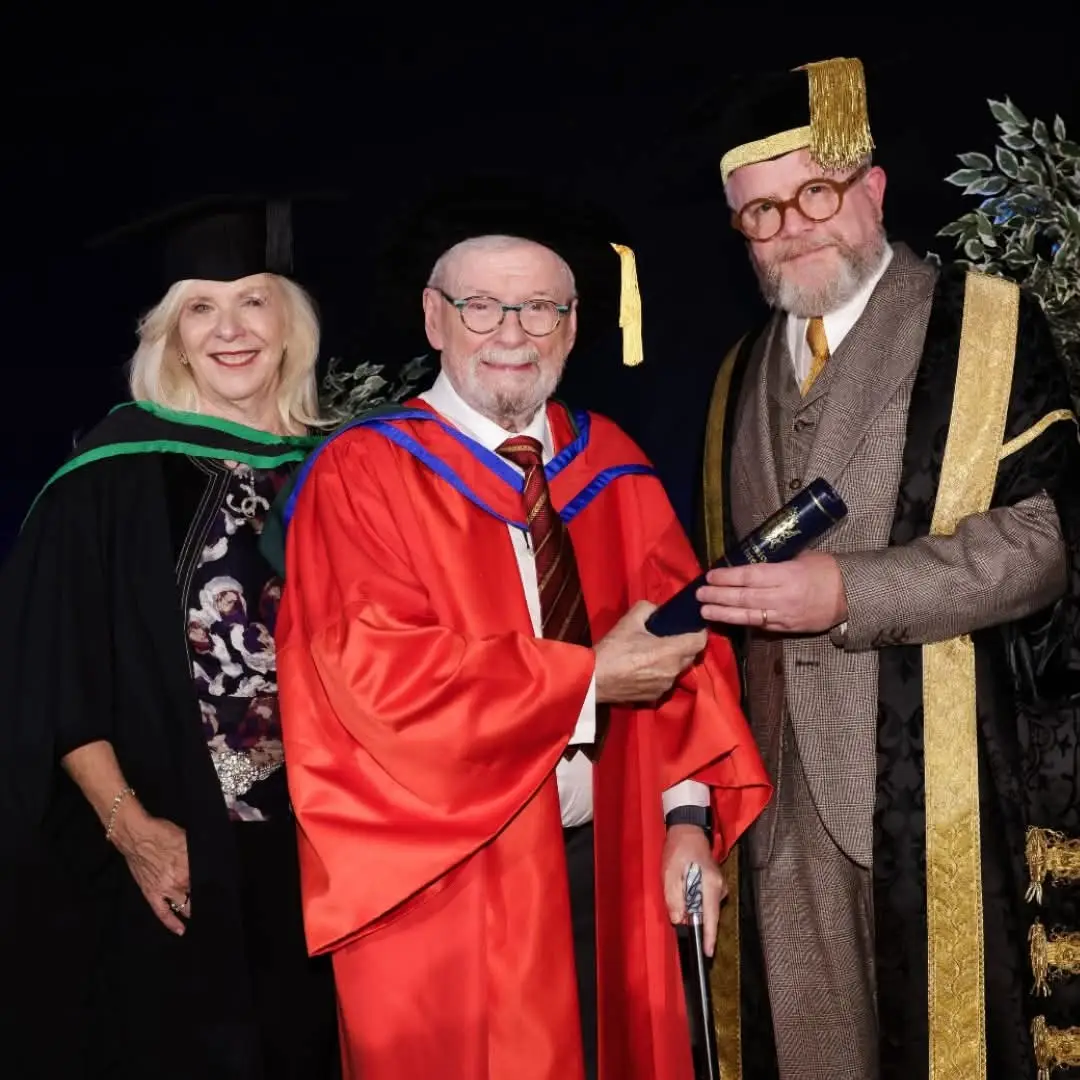
Ulster University has conferred an Honorary Doctorate upon Sir James Galway, marking a triumphant and deeply meaningful homecoming for one of the most influential flutists of all time. The ceremony, held at the University’s Belfast campus, celebrated his unparalleled artistic achievements and a career that has shaped the global direction of modern flute playing for more than six decades.
In conjunction with the award, the University unveiled a special two-week public exhibition dedicated to Sir James’s life and musical legacy. The exhibition offered visitors a rare window into archival materials, collaborations, and pivotal moments from his extraordinary career, and remained open until 27 November.
